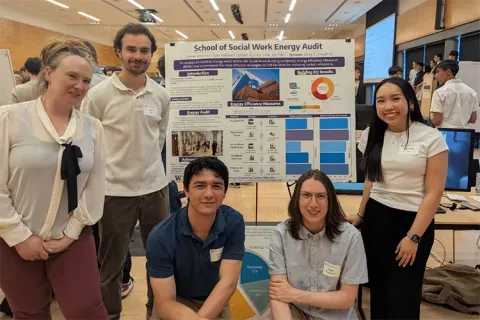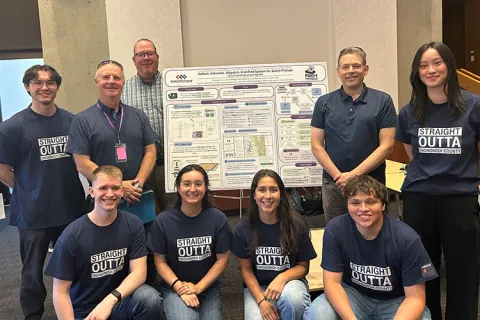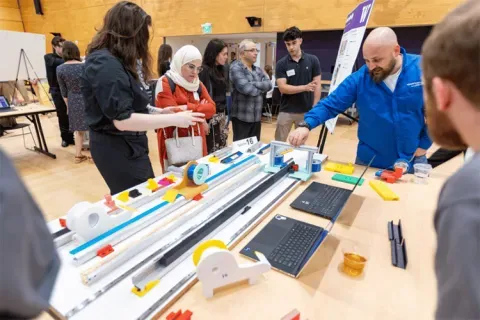Microsoft
Quantum Resource Estimation of Arithmetic Primitives
This project aimed to investigate the quantum computational resources needed for arithmetic primitives such as addition, multiplication, and exponentiation for integers and/or reals in floating point notation. This student team looked at the various primitives that are described in the quantum computing literature and set to analyze their efficiency in terms of the quantum resources that are needed to execute them in a fault tolerant manner. The resource estimation framework that was to be used is the one described in "Assessing requirements to scale to practical quantum advantage" by Michael E. Beverland, Prakash Murali, Matthias Troyer, Krysta M. Svore, Torsten Hoefler, Vadym Kliuchnikov, Guang Hao Low, Mathias Soeken, Aarthi Sundaram, and Alexander Vaschillo, 2022, arxiv.2211.07629. When possible the analysis used the Resource Estimation tool available on Azure Quantum. The primary scope of the project was to investigate the algorithms and circuits that already exist in the literature. The project also attempted to look at potential improvements on the existing results. The main outcome of the project was intended to be a comprehensive and consistent overview of the quantum resources needed to implement arithmetic primitives using a realistic fault tolerant quantum architecture. This overview seeks to give a better quantitative understanding of how the quantum algorithms for these primitives have improved over the past 25 years.
Faculty Adviser(s)
Sara Mouradian, Electrical & Computer Engineering
Related News

Mon, 10/13/2025 | UW Mechanical Engineering
Capstone collaboration leads to award
An ME capstone team received first place for its energy audit of the UW School of Social Work building.

Thu, 07/17/2025
UW engineering students develop smart ballot solution
UW engineering students develop smart technology solution to improve ballot collection for Snohomish County.

Mon, 07/07/2025 | UW Mechanical Engineering
Capstone creations
Students displayed innovative capstone design projects at the 2025 expo.

Fri, 09/20/2024 | UW Civil & Environmental Engineering
Smarter irrigation for a greener UW
A new project combines satellite data with ground sensors to conserve water and create a more sustainable campus environment.